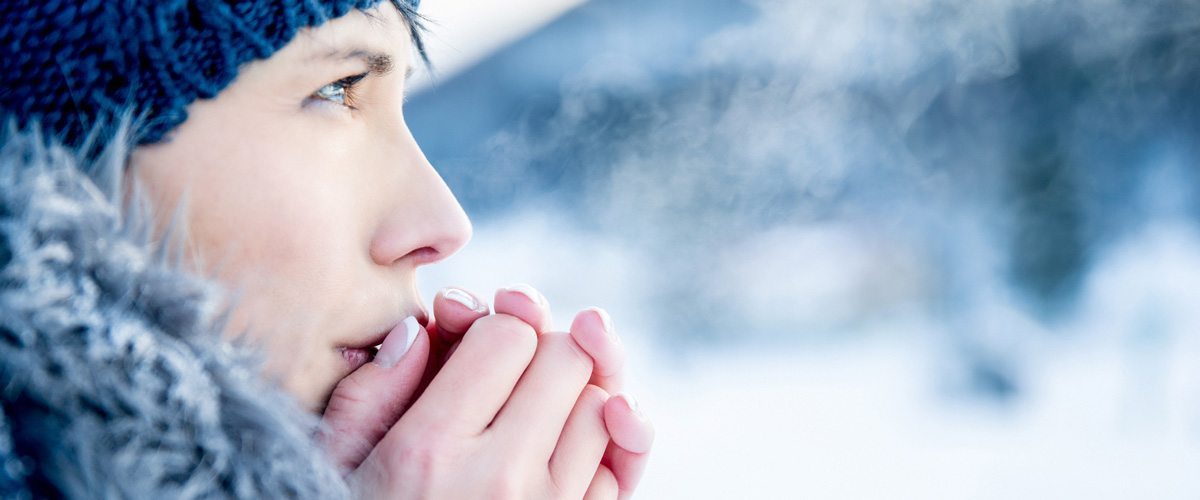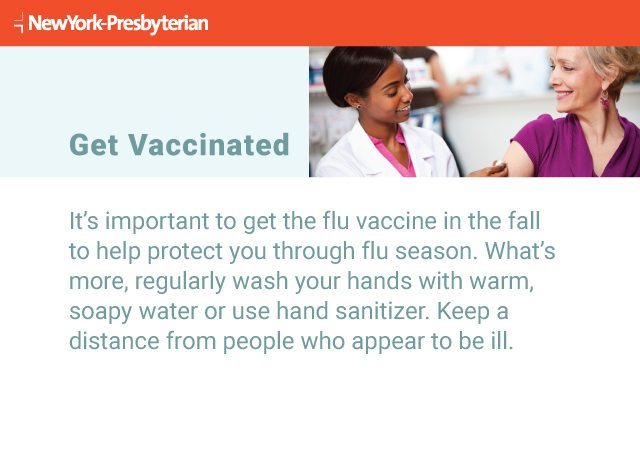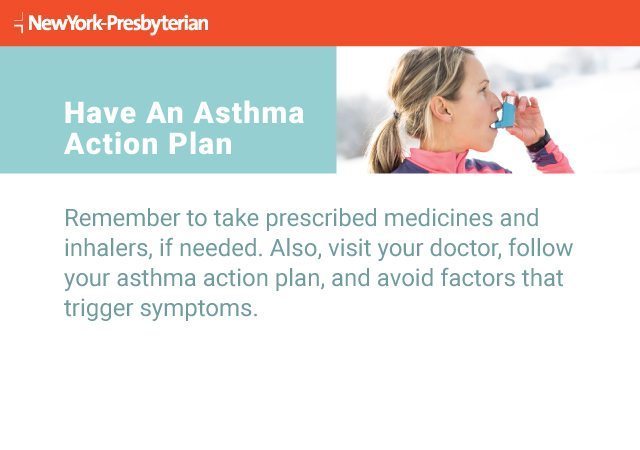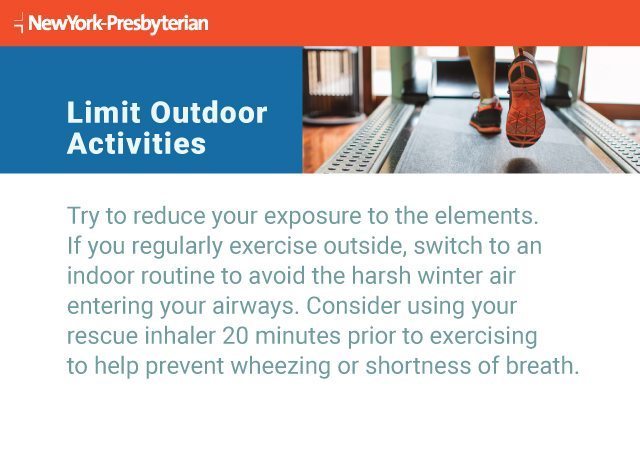How Asthma Sufferers Can Stay Healthy This Winter
For those with bronchial issues, here are tips to protect yourself during cold weather.

Each year, asthma — and the accompanying shortness of breath, chest tightness, fatigue, coughing, and wheezing — sends an estimated 9.8 million people to the doctor’s office for relief and accounts for 1.8 million emergency department visits.
Winter can be especially challenging for people with asthma. That’s because seasonal triggers like indoor allergens and dry, cold air make it hard to keep asthma under control.
Here, Dr. Stephen Canfield, an allergist/immunologist at NewYork-Presbyterian/Columbia University Irving Medical Center and an assistant professor of medicine at Columbia University Vagelos College of Physicians and Surgeons, shares his insights on the challenges winter poses and best tips for keeping asthma symptoms at bay.
The Link Between Winter and Asthma
There are several reasons why cold weather is particularly challenging for those who suffer from asthma.
“The biggest one that comes to mind is infection rates,” says Dr. Canfield.
Certain viruses, including the flu, and illnesses such as upper respiratory infections are more frequent in winter. We tend to spend more time indoors, which means we’re in close contact with others who may expose us to these contagions, thus potentially worsening asthma’s bronchial symptoms.
A host of allergens poses another threat when we hunker down inside and keep the windows closed. Seemingly innocuous things like pet dander and house dust to more problematic issues like mold can worsen or trigger asthma symptoms. Airways of the lungs can become inflamed and swollen, and asthma sufferers may experience increased coughing and wheezing.
“Getting allergy tested and getting the advice of an allergist is helpful,” says Dr. Canfield. “It’s important for people to know if they have allergic triggers to their asthma and how to avoid those.”
There are specific things you can do around the house to limit your exposure, such as using allergen-proof bedding and covers, avoiding excessive humidifying, and ensuring proper ventilation in your home.
Threats don’t solely exist indoors, however.
“Cold air is typically an irritant in the airways. The other aspect of winter is that it’s very dry, and low humidity can also act as an irritant,” Dr. Canfield explains. “The dual factor of cold and dry [air] tends to promote having tight airways and having trouble breathing.”
Breathing cold air through your mouth rather than through your nose can pose a risk. So can rapid, heavy breathing, such as when you exert yourself while exercising or shoveling snow. Your airways cool quickly, potentially resulting in irritation and bronchospasm (tightening of the airways).
Avoiding Wintertime Flare-Ups
While winter poses many challenges, Dr. Canfield says there are several steps you can take to defend yourself.
When Should You Seek Medical Treatment?
It’s important to know when your symptoms may be beyond your care. Seek medical treatment if your symptoms feel out of control and no longer within self-help range. Some warning signs may also be if you experience a new cough, produce a lot of phlegm, or have a fever higher than 101 F.
If you feel that you’re experiencing an asthma emergency or symptoms beyond your control, seek immediate care.
“Pre-treatment can go a long way in preventing asthma flare-ups,” says Dr. Canfield. “If one does feel like their asthma is out of control, contacting the doctor is a good idea because the symptoms can go from bad to worse.”




